 W
WCasta Álvarez Barceló was an Aragonese insurgent, who fought in the First siege of Zaragoza. This took place during the 1808 to 1814 Spanish War of Independence, or Guerra de la Independencia Española, part of the Peninsular War.
 W
WAgustina Raimunda Maria Saragossa i Domènech or Agustina of Aragón was a Spanish heroine who defended Spain during the Peninsular War, first as a civilian and later as a professional officer in the Spanish Army. Known as "the Spanish Joan of Arc," she has been the subject of much folklore, mythology, and artwork, including sketches by Francisco Goya and the poetry of Lord Byron.
 W
WRaḯsa Mojséïvna Azárh or Raisa Moyseyevna Azarkh was a distinguished physician of the Soviet Union, and also an author, essayist and biographer.
 W
WMagda Bošković was a Croatian communist, Partisan and member of the women's rights movement.
 W
WMaría Bruguera Pérez was an anarcho-syndicalist who died in Madrid in 1992.
 W
WAlexandrina "Didina" Cantacuzino was a Romanian political activist, philanthropist and diplomat, one of her country's leading feminists in the 1920s and '30s. A leader of the National Council of Romanian Women and the Association of Romanian Women, she served as Vice President of the International Council of Women, representing the International Alliance of Women, as well as Romania, to the League of Nations. However, her feminist beliefs and international profile clashed with her national conservatism, her support for eugenics, and eventually her conversion to fascism.
 W
WErnestina de Champourcín Morán de Loredo was a Spanish poet. She is most associated with the Generation of '27.
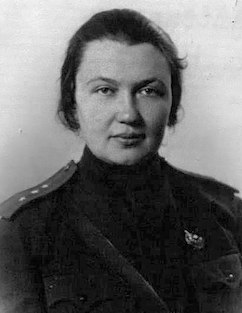 W
WNora Pavlovna Chegodayeva was a Soviet interpreter and translator. A Red Army officer during World War II, she was one of the organizers of a women's sniper course that became famous after its later reorganization as the Central Women’s Sniper Training School.
 W
WNancy Clara Cunard was a writer, heiress and political activist. She was born into the British upper class, and devoted much of her life to fighting racism and fascism. She became a muse to some of the 20th century's most distinguished writers and artists, including Wyndham Lewis, Aldous Huxley, Tristan Tzara, Ezra Pound and Louis Aragon—who were among her lovers—as well as Ernest Hemingway, James Joyce, Constantin Brâncuși, Langston Hughes, Man Ray and William Carlos Williams. MI5 documents reveal that she was involved with Indian socialist leader VK Krishna Menon. In later years she suffered from mental illness, and her physical health deteriorated. When she died in the Hôpital Cochin, Paris, she weighed only 26 kg.
 W
WJeanne d'Albret, also known as Jeanne III, was the queen regnant of Navarre from 1555 to 1572. She married Antoine de Bourbon, Duke of Vendôme, becoming the Duchess of Vendôme and was the mother of Henri de Bourbon, who became King Henry III of Navarre and IV of France, the first Bourbon king of France.
 W
WElisabeth Eidenbenz, was a teacher and a nurse and founder of the Mothers of Elne. Between 1939 and 1944, she saved some 600 children who were mostly the children of Spanish Republicans, Jewish refugees and gypsies fleeing the Nazi invasion.
 W
WMaría de la Encarnación Gertrudis Jacoba Aragoneses y de Urquijo was a Spanish author of children's literature who wrote under the pen name Elena Fortún. She became famous for Celia, lo que dice the first in the series of children's novels which were a collection of short stories first published in magazines in 1929. The series were both popular and successful during the time of their publications and are today considered classics of Spanish literature.
 W
WJuana Galán (1787–1812), nicknamed La Galana, was a guerrilla fighter of the Peninsular War (1808–1814) who took to the street to fight against the French cavalry that tried to pass through the town of Valdepeñas. At twenty years old, she was considered the best informed woman of the village, because she worked in a strategic location, the first tavern in the village.
 W
WMartha Ellis Gellhorn was an American novelist, travel writer, and journalist who is considered one of the great war correspondents of the 20th century.
 W
WMarina Ginestà i Coloma was a French-born Spanish veteran of the Spanish Civil War, and a member of the Unified Socialist Youth. She became famous due to the photo taken by Juan Guzmán on the rooftop of Plaça de Catalunya 9, 08002 Barcelona, Catalonia, Barcelona during the July 1936 military uprising in Barcelona. It is one of the most iconic photographs of the Spanish Civil War.
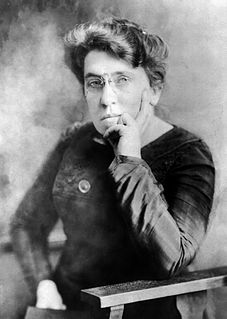 W
WEmma Goldman was an anarchist political activist and writer. She played a pivotal role in the development of anarchist political philosophy in North America and Europe in the first half of the 20th century.
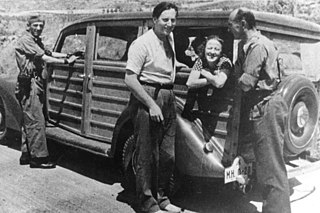 W
WGerda Johanne Helland Grepp was a Norwegian translator, journalist, and socialist. She was the daughter of former chairman of the Norwegian Labour Party Kyrre Grepp and journalist Rachel Grepp.
 W
WMaría Martina Ibaibarriaga Elorriaga was a Spanish guerrilla leader during the Peninsular War (1807–14). A legend later grew up that she pretended to be a man, enlisted in the Spanish army, and rose to the rank of lieutenant colonel.
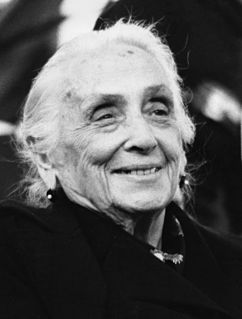 W
WIsidora Dolores Ibárruri Gómez – known as Pasionaria" – was a Spanish Republican fighter of the Spanish Civil War of 1936–1939 and a communist politician known for her famous slogan ¡No Pasarán! issued during the Battle for Madrid in November 1936.
 W
WSalaria Kea O'Reilly was an American nurse and desegregation activist who volunteered in both the Spanish Civil War and the Second World War. During the Spanish Civil War she was the only African American nurse working in the Abraham Lincoln Battalion.
 W
WVictoria Kent Siano was a Spanish lawyer and republican politician.
 W
WLise London was a French Communist politician and activist. She participated in the International Brigades during the Spanish Civil War and the French Resistance during World War II. She was the widow of Artur London, a Czechoslovak communist politician and co-defendant in the Slánský Trial. Following her husband's show trial and imprisonment, she became a strong critic of Stalin and Stalinism.
 W
WCamelia Ethel MacDonald was a Glasgow-based Scottish anarchist and activist and, in 1937, during the Spanish Civil War, a broadcaster on Barcelona Loyalist radio.
 W
WManuela Malasaña Oñoro was one of the victims of the uprising against the troops of Napoleon I of France stationed in the Spanish capital during the Peninsular War.
 W
WTina Modotti was an Italian American photographer, model, actor, and revolutionary political activist for the Comintern. She left Italy in 1913 and moved to the USA, where she worked as a model and subsequently as a photographer. In 1922 she moved to Mexico, where she became an active Communist.
 W
WFederica Montseny Mañé was a Spanish anarchist, intellectual and Minister of Health during the Spanish Revolution of 1936, a social revolution that occurred in Spain in parallel to the Spanish Civil War.
 W
WMargarita Nelken (1894–1968) was a Spanish feminist and writer. She was a well known intellectual and a central figure in the earliest Spanish women's movement in the 1930s.
 W
WMaría López de Mendoza y Pacheco, commonly known as María Pacheco, was a leader in the Revolt of the Comuneros in Spain, an uprising of the citizens against the monarchy.
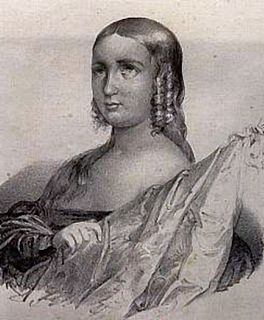 W
WMariana de Pineda y Muñoz, generally known as Mariana Pineda, was a Spanish liberalist heroine.
 W
WMaría Mayor Fernández de Cámara y Pita (1565–1643), known as María Pita, was a heroine in the defense of Coruña, northern Spain, against the English Armada attack, an English attack upon the Spanish mainland in 1589. She was born in Sigrás.
 W
WTeresa Rebull, née Teresa Soler i Pi (1919-2015) was a Catalan- Spanish nurse for the POUM who later became a singer. She was actively involved in the May Days events and punished for that. She later escaped Spain, where she could face danger from both Stalinists and Francoists, for France. In France she would join the Maquis after the Nazi invasion. After the war she became musically associated to Nova Cançó.
 W
WJuana María de los Dolores de León Smith, Lady Smith was the wife of General Sir Harry Smith, Governor of the Cape Colony.
 W
WGerta Pohorylle, known professionally as Gerda Taro, was a German Jewish war photographer active during the Spanish Civil War. She is regarded as the first woman photojournalist to have died while covering the frontline in a war.
 W
WBarbara Wertheim Tuchman was an American historian and author. She won the Pulitzer Prize twice, for The Guns of August (1962), a best-selling history of the prelude to and the first month of World War I, and Stilwell and the American Experience in China (1971), a biography of General Joseph Stilwell.
 W
WMaría Rosa Urraca Pastor (1900–1984) was a Spanish Carlist politician and propagandist. She is known mostly as a thrilling orator, one of the best public speakers of the Second Spanish Republic. She is also noted as head of Delegación Nacional de Frentes y Hospitales, the Nationalist wartime organization catering for the wounded.